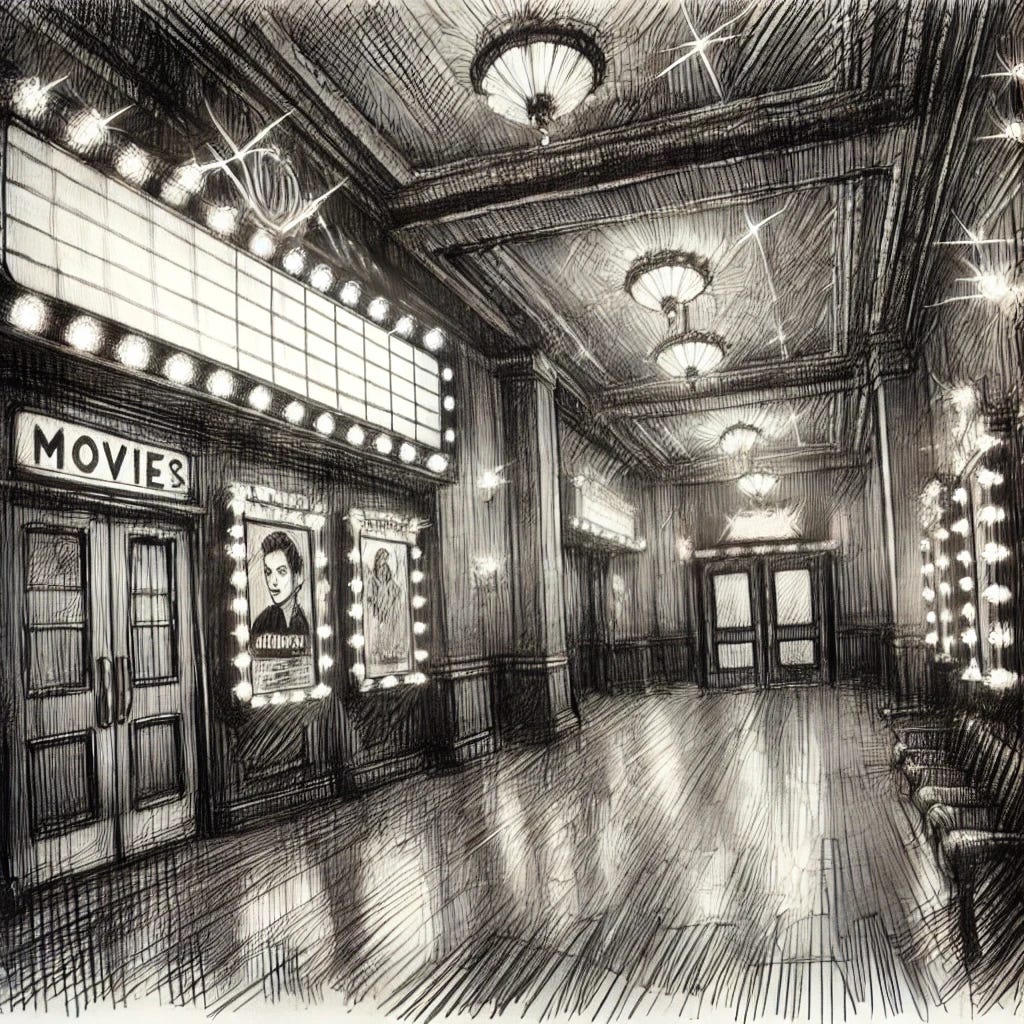While working at a movie theater that served food, I learned an awful lot about how not to run a business. In the vein of Pulp Fiction, which I got to see countless times while working there, I’m going to begin with the end of my time at the Movie Café and let you know that the business closed down after I had been there for about two years.
We found out it was our last day when we came in to work. None of us got our last paychecks, as far as I know, and all of us understood that this was likely. I can only imagine the financial end was just as poorly run as everything else.
I didn’t realize that the business was in terminal decline when I was hired, but the signs were all around me, and it gradually dawned on me that this might be a temporary gig. The biggest sign was difficulty in paying all the bills, which filtered down from the managers to the workers. We knew something was going on.
We also watched and participated in some pretty wild cost-cutting measures. Here was one of them:
Naturally, we also served nachos at the Movie Café. Toward the end of the life of the business, the idea was to get everything to stretch farther, so we added water and corn starch to thicken the nacho cheese. I’m not proud of participating in this, but honestly there was plenty to be not-proud of from those days.
The nacho cheese tampering was only the most obvious way to cut costs, but there were dozens of shady measures like this, designed to bring the all-important food cost metric down so the doors could stay open for another month. Among these drastic measures were things like fewer toppings on pizza and more ice in sodas.
The writing was on the wall.
When we opened up one of those big nacho cheese cans, we would usually dump the contents into a double-boiler pot set up, so the cheese would stay melted, but wouldn’t scald too much on the sides. Part of the usual process was to add water as needed, since water was constantly evaporating, and the cheese would get way too thick if left unattended.
Adding water meant that the cheese would last just a bit longer, too. You could make it stretch, in other words, by cutting the cheese with water. The only problem was that diluted cheese is pretty gross. The consistency just isn’t right for nachos.
That meant adding cornstarch. A tug-of-war would ensue between this thickening agent and watery cheese, and you had to be careful not to go too far in one direction or the other. Of course, you also had to have some actual cheese in there too, but the percentage could vary quite a bit, since nachos generally had a bunch of other stuff on top of the cheese.
I certainly felt ethically icky doing these sorts of cost-cutting projects. This felt more like a bait-and-switch than real business to me, but on the other hand, I was 20 years old and unaware of how to rock the boat without completely capsizing it. As a result, I learned some pretty shady kitchen stuff for a few years.
I made the most of things. I was an art major at VCU, so I figured maybe this was an opportunity for me to use some of those skills. I convinced the boss to pay me to redesign the menu for the Movie Café. I still have those designs, and I think they’re actually quite good for a twenty year old trying to figure out life:
Unfortunately, my art and marketing skills were not enough to save the business.
My next—and last—restaurant job was almost the polar opposite of this experience. Instead of trying to make the food worse in order to save money, my bosses insisted on an ever-higher standard of quality. I really came to appreciate that mindset over the next few years.
I was able to embrace cooking. We learned not to waste food, but not to skimp at the expense of quality. For several years, I really got into doing things properly. I read Gourmet Cooking for Dummies and loved it. Maybe this was the pendulum swinging far away from the last experience, or maybe cooking is just cool. Either way, I’m really glad I have those skills today.






Well, at least we now know exactly WHO cut the cheese!
"Cutting the cheese" has a literal, obvious meaning, and it has also been used as a euphemistic reaction to someone passing gas. What you were doing is somewhere in between the two.